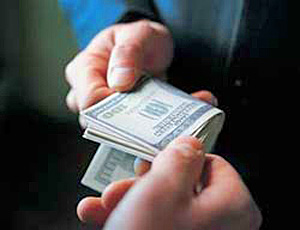Damage Spreads for Glaxo in China Bribery Scandal – Execs Oversaw Bribes
July 23rd, 2013 // 1:11 pm @ jmpickett
Latest FDA and cGMP Compliance News
More fallout is coming for GlaxoSmithKline in the bribery scandal mess in China. This past weekend, the drug company was scrambling on multiple fronts to limit the damage from the bribery scandal. The president of international operations, Abbas Hussain, met with authorities in China and issued a formal statement, which admitted that some senior executives acted illegally or unethically, in breach of the laws of China. To appease the authorities there, he added that some changes that are going to be made will next lower drug prices in China.
Also, GSK met with investigators from the Serious Fraud Office in the US, which has the power to investigate fraud both in the US and overseas. This week, GSK will release its earning report for the quarter, and the CEO of the company, Andrew Witty, is expected to address the bribery mess. It is not known if Witty is going to meet with Chinese authorities, however.
New Webinar – The Hitchhiker’s Guide to 483s and Warning Letters
Meanwhile, the firm has fired dozens of sales representatives in China, going back to 2012 due to the bribery mess. GSK initially denied the scandal but it was brought into the light of day by a whistleblower.
And now, the stuff is really hitting the fan in the GSK bribery scandal. A spokesperson for Astrazeneca has stated this week that authorities in China visited Astrazeneca offices in the country and have questioned several employees, including sales reps. The authorities in China also have questioned other drugmakers, such as Roch, Merck and Novartis who have conducted business with the travel agency with which GSK is believed to have used to funnel illegal payments. That travel agency has been shut down by the authorities, it has been reported. The bribery probe has been is spreading to other drugmakers, and UCB and Baxter also are being investigated.
There is little doubt now that this bribery crisis is severe, just as bad as the $3 billion penalty that GSK shelled out last year related to selling drugs for uses that were unapproved in the US and for concealing clinical trial data. Witty vowed that he was going to return GSK to respectability, but this bribery scandal is a major hitch in that plan. The big problem here is that many of the bribery schemes appear to have been overseen by upper level GSK executives, who are supposedly very well versed in regulatory compliance, cGMPs and ethical practices.
At this point, GSK is the example being made in China as far as bribery goes, but everyone in the pharmaceutical industry should take note: Chinese authorities are showing a high level of interest in other drug companies. The pharma industry is being put on notice that bribery in China can lead to big trouble.



